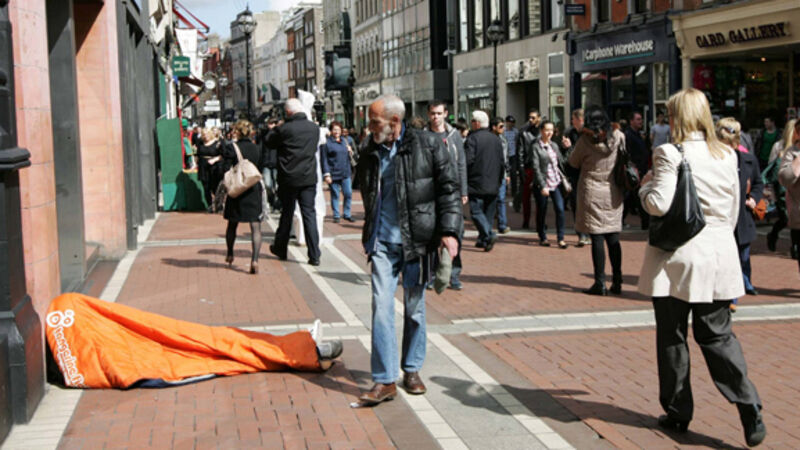500% increase in people sleeping rough in Cork

Rough sleeping numbers have surged in Cork, from 38 in 2011 to 230 people at the time of the survey.
The Irish Examiner survey of Focus Ireland, the Simon Community, Depaul, Novas, and Cope Galway found that each charity’s funding had been cut significantly in recent years, by around 20%-25% across the board. Most also stated that demand for services is at an all-time high.













